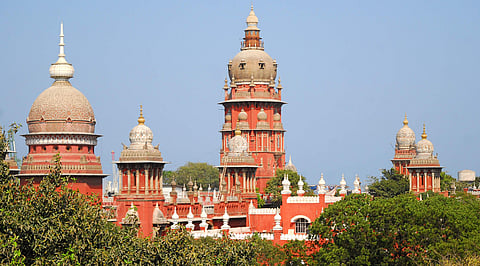

CHENNAI: The arguments on the petitions seeking quo warranto writ against the continuance of Tamil Nadu Ministers Udhayanidhi Stalin, PK Sekar Babu and DMK MP A Raja in public office in the wake of the Sanatana Dharma row were wound up on Thursday.
Justice Anita Sumanth, before whom the arguments were advanced, gave a week’s time for the counsels of both sides to submit their written arguments.
On the last day, senior counsels P Wilson, N Jothi and R Viduthalai appearing for Udhayanidhi Stalin, Sekar Babu and Raja respectively, wrapped up their arguments harping on the right to free speech and the court’s limitations in deciding disqualification of legislators.
Referring to Article 25 of the Constitution, Viduthalai said the constitutional precepts of equality, fraternity, etc. are rather promoted by the MP in condemning the undesirable and unconstitutional facets of the Sanatana Dharma than violating the provisions of the Constitution.
He also emphasised that the ‘Doctrine of Separation of Powers’ propounded by the Constitution and recognized by the Courts in India” does not enable the High Court to unseat an elected member of Parliament or State Legislature by the issuance of a Writ of Quo Warranto unless there is an anterior adjudication” about his disqualification by the competent authority.
Similarly, Wilson submitted that prescribing the disqualifications for MPs and MLAs is the sole prerogative of the Parliament under Article 191 (e) and that the Courts should respect the separation of powers.
He appealed to the court “not to transgress” into the exclusive domain of the Legislature and prescribe any additional disqualification.
However, senior counsel TV Ramanujam, representing one of the petitioners, said it is needless to go into the provisions of disqualification under Article 191 or the provisions of Chapter 3 of the Representation of People Act, 1951 to find an answer to whether the courts have powers under Article 226 to intervene in such situation.
“There is a void in the constitution in this regard. Hence, regardless of those provisions, this Court has wide powers under Article 226 to hold that this writ petition is maintainable and grant a writ of quo warranto,” he urged the court.
The counsel sought the court to exercise its power to ‘mould the relief’ and pass a declaration or direction to hold that the action of Udhayanidhi Stalin as ‘unconstitutional’.
G Rajagopalan, senior counsel, appearing for the petitioners, said the Minister heading the Hindu Religious and Charitable Endowments (HR&CE) must be professing the Hinduism, and so, should not have participated in the conference. His presence in the event has proved that he may not be professing Hinduism.
Another senior counsel G Karthikeyan, submitted that the declaration of Udhayanidhi Stalin to eradicate Sanatana Dharma is a ‘fraud played upon the Constitution’ and necessary action has to follow.